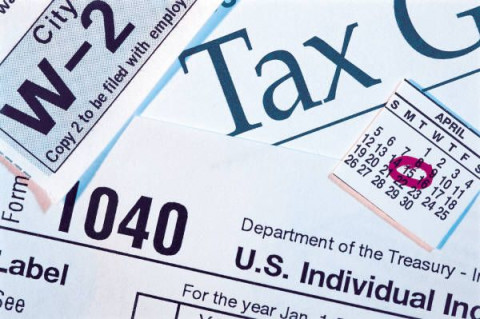Legal Blog
Lawyer's Advice – What Should New Businesses Know About the IRS Tax?
In their search for success, new businesses usually forget to address some of the more important things related to their activity.
For example, although a business may forget online marketing, others may even forget why IRS tax matters and why you should have a lawyer available and ready to ask any tax questions that you may have.
In this respect, in the following lines, we'll tell you some of the things that lawyers think you should know about the IRS tax when starting a new business!
The Structure of the Business
One of the very first things that business owners should think of is the structure of their business. This is because the structure will directly affect the kind of tax forms that they'll have to file.
For example, your business may fall under categories like sole proprietor, corporation, or partnership. Paying tax is not enough – you must also pay the proper tax for the type of business that you have!
The Business Taxes
Overall, when it comes to taxes that businesses have to pay, we can identify four general types. Namely – excise tax, income tax, employment tax, and then self-employment tax.
In some cases, these types of taxes are affected by the type of business structure that you have. Moreover, some instances may also have you engage in estimated payments, a case of which the IRS itself advises you to use the IRD Direct Pay option when paying them.
The Employer Identification Number
The next thing you should know about taxes and new businesses involves a bit of research on your side. If you go to the IRS website and search for "EIN" or "do I need an EIN", it will show you how to determine if your business requires an Employer Identification Number.
This is for federal tax purposes and you can easily apply for an EIN online, without too much hassle. The essential part is to make sure whether you need one or not!
The Accounting Method
When reporting expenses and income, a business makes use of various accounting methods. However, if the business operates under the IRS tax management system, then the accounting method must be a consistent one.
For this, one may choose between accrual and cash methods as they are the most common. The difference between the two is that one has a business deduct expenses when the business pays or receives them, while the other does so while incurring expenses.
The Employee Health Care
Small businesses can enjoy health care coverage that they can offer to their employees – this is done via the Small Business Health Care Tax Credit.
You can apply for this credit if you have less than 25 full-time employees – or a combination of full- and part-time. The maximum that you can get from this credit is roughly 50% of the premiums that are paid to employers.
The Bottom Line
While developing a company/business and trying to push it out on the market, one can easily forget the important things that will keep their business running in the future – such as employee health care, which is an essential aspect.
As such, it is highly recommended that, before you actually start your business, you consult with a lawyer that specializes in (IRS) tax that can tell you everything you should know and need to do in this respect!
References and Sources
https://www.irs.gov/newsroom/irs-tax-tips-for-starting-a-business


Комментарии